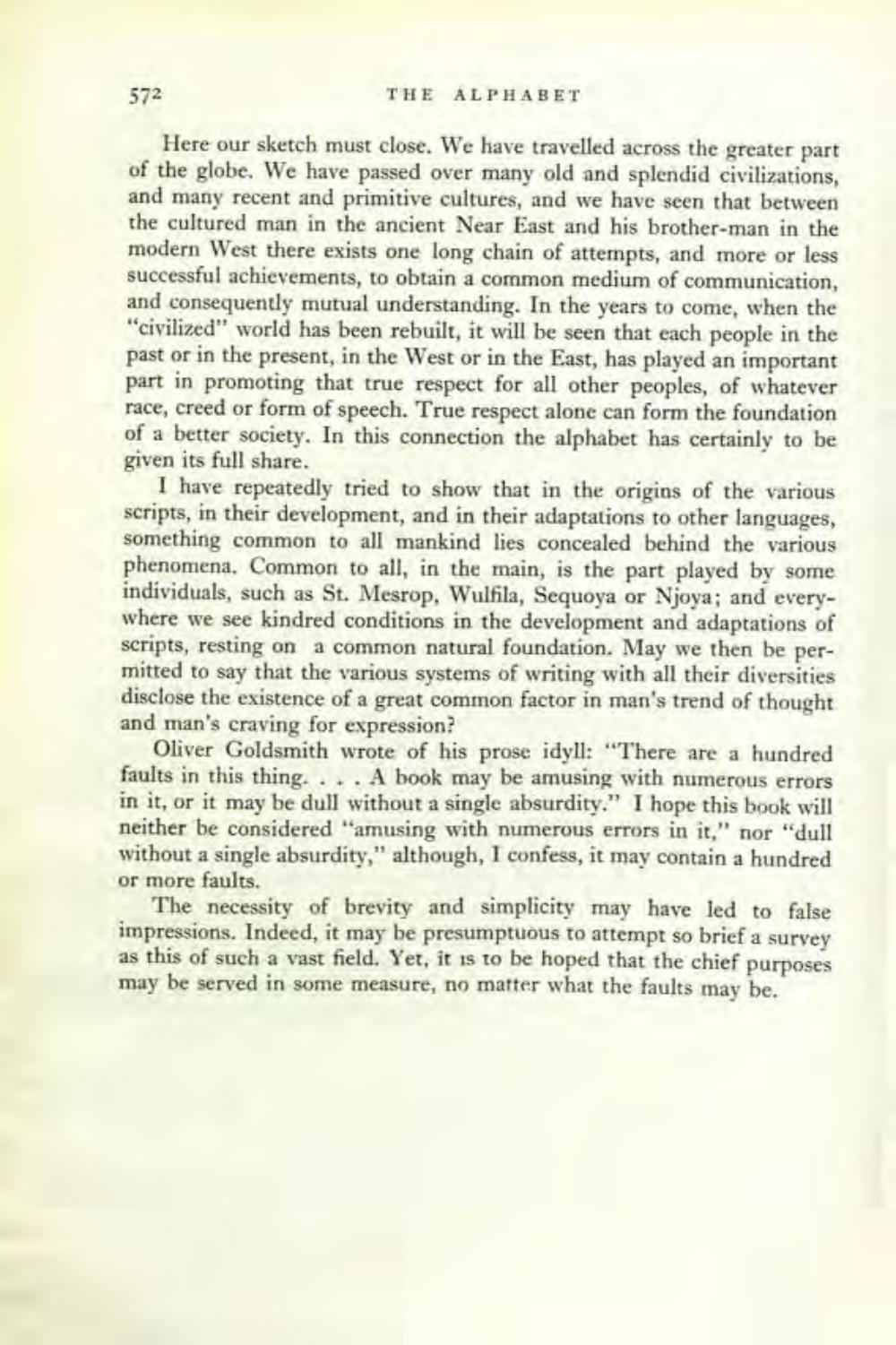________________
572
THE ALPHABET
Here our sketch must close. We have travelled across the greater part of the globe. We have passed over many old and splendid civilizations, and many recent and primitive cultures, and we have seen that between the cultured man in the ancient Near East and his brother-man in the modern West there exists one long chain of attempts, and more or less successful achievements, to obtain a common medium of communication, and consequently mutual understanding. In the years to come, when the "civilized" world has been rebuilt, it will be seen that each people in the past or in the present, in the West or in the East, has played an important part in promoting that true respect for all other peoples, of whatever race, creed or form of speech. True respect alone can form the foundation of a better society. In this connection the alphabet has certainly to be given its full share.
I have repeatedly tried to show that in the origins of the various scripts, in their development, and in their adaptations to other languages, something common to all mankind lies concealed behind the various phenomena. Common to all, in the main, is the part played by some individuals, such as St. Mesrop, Wulfila, Sequoya or Njoya; and everywhere we see kindred conditions in the development and adaptations of scripts, resting on a common natural foundation. May we then be permitted to say that the various systems of writing with all their diversities disclose the existence of a great common factor in man's trend of thought and man's craving for expression?
Oliver Goldsmith wrote of his prose idyll: "There are a hundred faults in this thing.... A book may be amusing with numerous errors in it, or it may be dull without a single absurdity." I hope this book will neither be considered "amusing with numerous errors in it," nor "dull without a single absurdity," although, I confess, it may contain a hundred or more faults.
The necessity of brevity and simplicity may have led to false impressions. Indeed, it may be presumptuous to attempt so brief a survey as this of such a vast field. Yet, it is to be hoped that the chief purposes may be served in some measure, no matter what the faults may be.




